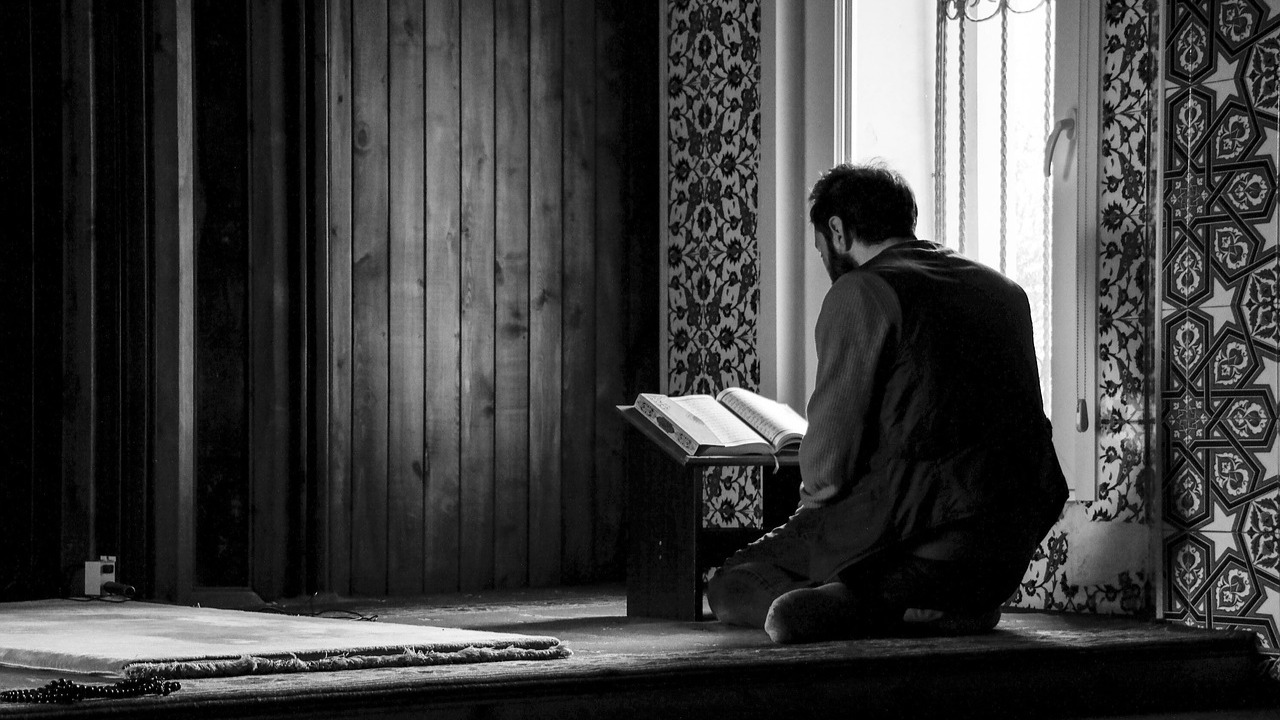How many books have you read about Muslims since the Christchurch mosque shootings? How many have you read in your lifetime? In this instalment of The Reckoning, Sapling editor Nida Fiazi argues for more books with Muslim representation, and offers her reckons about how we can achieve this.

We are approaching the end of Ramadan, the Muslim holy month in which the first verses of the Qur’an were revealed, and I cannot help but notice that yet another year has gone by where Muslims are grossly underrepresented in New Zealand literature.
The general assumption is that Muslims are fairly new to Aotearoa, but we have actually been in this country since the 1700s. Most people would not know that though given how little presence we have had/been allowed to have in media, politics, literature, and even public life.
I think it is fair to say that the world only started paying close attention to Muslims after 9/11, when we were forced to collectively shoulder the blame for the actions of an extremist group. In the decades since, Muslims have been vilified by the media and politicians who frequently associate us with terrorism. So much so, that the two have become synonymous in the Western consciousness. It is this kind of anti-Muslim rhetoric that led to the horrific mass shootings in Christchurch last year.
…the world only started paying close attention to Muslims after 9/11, when we were forced to collectively shoulder the blame for the actions of an extremist group.
If there is anything this tragic event revealed, it is that we are in desperate need of not just more, but also positive narratives about Muslims. This way we can counter, but also spread awareness of the existing negative, often inaccurate perceptions which only perpetuate Islamophobia within our societies. It is unsettling, but we have to acknowledge that the book industry, and by extension us as readers, have been indirectly contributing to the issue of Islamophobia through our complicity in the exclusion of Muslims from the literary world.
Following the attacks, bookstores and libraries across the country anticipated that Kiwis would turn to books not only to educate themselves and their children about the issue, but also to emotionally/mentally process the traumatic event, and comfort themselves and those affected. They tried to cater to this by creating Muslim/Islam themed book displays—a task that proved quite difficult as they had nothing in stock/available on the topic other than the Qur’an and a few texts on the history of Islam, both of which sold immediately.
Online bookshops were marginally better in regards to what they had to offer, but even they could not stock something that did not exist. Kiwi book blogs/websites tried their best to help by publishing booklists on the topic (one of which was on this very website). Most, if not all, included international books—they had to if they wanted to resemble anything close to an actual list.
This was quite the wake up call for booksellers and readers alike. New Zealanders, on a national scale, were finally interested in hearing Muslim voices, but they could not because these voices had been neglected for so long. I had hope though, that things would change given the incredible outpouring of aroha and support that our community received immediately after the incident.
It is unsettling, but we have to acknowledge that the book industry, and by extension us as readers, have been indirectly contributing to the issue of Islamophobia through our complicity in the exclusion of Muslims from the literary world.
However, since the March 15 terror attacks there are only six books (that I’m aware of) about/including/by Muslims that have/will be published in New Zealand. Three of them are picture books: Kia Kaha: Together Standing Strong by June Pitman-Hayes, Minky Stapleton and Ngaere Roberts, Taking the Lead by David Hill and Phoebe Morris, and All of This is For You by Ruby Jones. Two are non-fiction books: Husna’s Story by Farid Ahmed, the husband of a victim of the mass shootings, and Know Your Place by Golriz Ghahraman (to be published). The last is an anthology titled Ko Aotearoa Tātou | We Are New Zealand which is set to come out this October. Not all of these are explicitly about Muslims. Regardless, that is all New Zealand’s literary scene has had to offer in terms of Muslim representation this past year.
Why have we not published more?
Is it because non-Muslim Kiwi creatives are apprehensive about writing/illustrating about a topic they feel they do not know enough about? If so, this could easily be resolved with some critical thinking and proper research. Maybe they think it is not their place to tell Muslim stories, and are concerned about taking the place of Muslim creatives? Even then, the solution is quite simple: involve Muslims in the creative process. Whether that be in the form of a collaboration or better yet, solo projects where we can tell our own stories.
The only other reason I can think of that would explain the ongoing underrepresentation of Muslims in New Zealand literature—especially after what happened last year—is the desire to avoid potentially capitalising off tragedy. I think this is probably the most reasonable justification of the three. Even I, as a Muslim, felt I had no right to write about the shootings or my own struggles being a Muslim in this country after March 15, because I was not directly affected nor did I personally know anyone directly affected by the attacks. But this kind of thinking, while noble, does not actually help resolve the issue.
I would also like to point out that the New Zealand publishing industry has not shied away from capitalising off tragedy in the past. The aftermath of the Christchurch earthquakes saw a plethora of memoirs, picture books, and adult fiction emerge on the topic. This double standard is quite disheartening to see. I recognise that many of these books had elements of ‘fundraising’, in that a portion/all of the proceeds went to charities for earthquake recovery, but that sort of action would have not gone amiss for this tragedy. Though it may seem inappropriate to write about the March 15 attacks if you were not personally affected, this does not excuse publishers from working with Muslim creators to release books on Islam/the Muslim experience that could serve to educate a wider audience.
…the New Zealand publishing industry has not shied away from capitalising off tragedy in the past.
What happened last year was the outcome of a severe lack of knowledge about Muslims and Islam. As such, I cannot help but express my disappointment and regret at what I consider to be a missed opportunity by the New Zealand book industry to educate. This past year’s meager offerings leave me with doubts about the gestures of support and solidarity which were expressed last year, as I cannot help but see them as tokenistic now. As moving as it was to witness mosques across the country flooded with flowers and messages of support, the adhaan (call to prayer) broadcast nationally (something I never, ever thought could happen in New Zealand prior to the shootings), and our Prime Minister, and many other women, wearing headscarves, it is not enough.
If we are serious about alleviating this environment of threat surrounding our Muslim community, then we need to take concrete action. This action needs to address the root of the problem as well as the symptoms. Banning assault rifles and offering monetary compensation to the affected families is an important start, but educating New Zealanders about their Muslim neighbours, and exposing them to not just more, but also positive, and diverse narratives about them will greatly reduce people’s anxieties and help cultivate acceptance.
It is on us, as readers, and consumers of media, to foster a voice of inclusivity that the creative industries have been neglecting for far too long, and to encourage the book industry to do their part to fulfill this demand.
Editors’ note: The Reckoning is a regular column where children’s literature experts air their thoughts, views and grievances. They’re not necessarily the views of the editors or our readers. We would love to hear your response to any of The Reckonings – join in the discussion over on Facebook.

Nida Fiazi has worked in the New Zealand book industry for the past five years as a poet, editor, reviewer, and advocate for better representation in literature. She is a Hazara Kiwi Muslim and a former refugee based in Kirikiriroa. Her work has appeared in Issue 6 of Mayhem Literary Journal, the anthology Ko Aotearoa Tātou | We Are New Zealand, and Poetry NZ Yearbook 2021. She is currently penning an opera with Tracey Slaughter.



